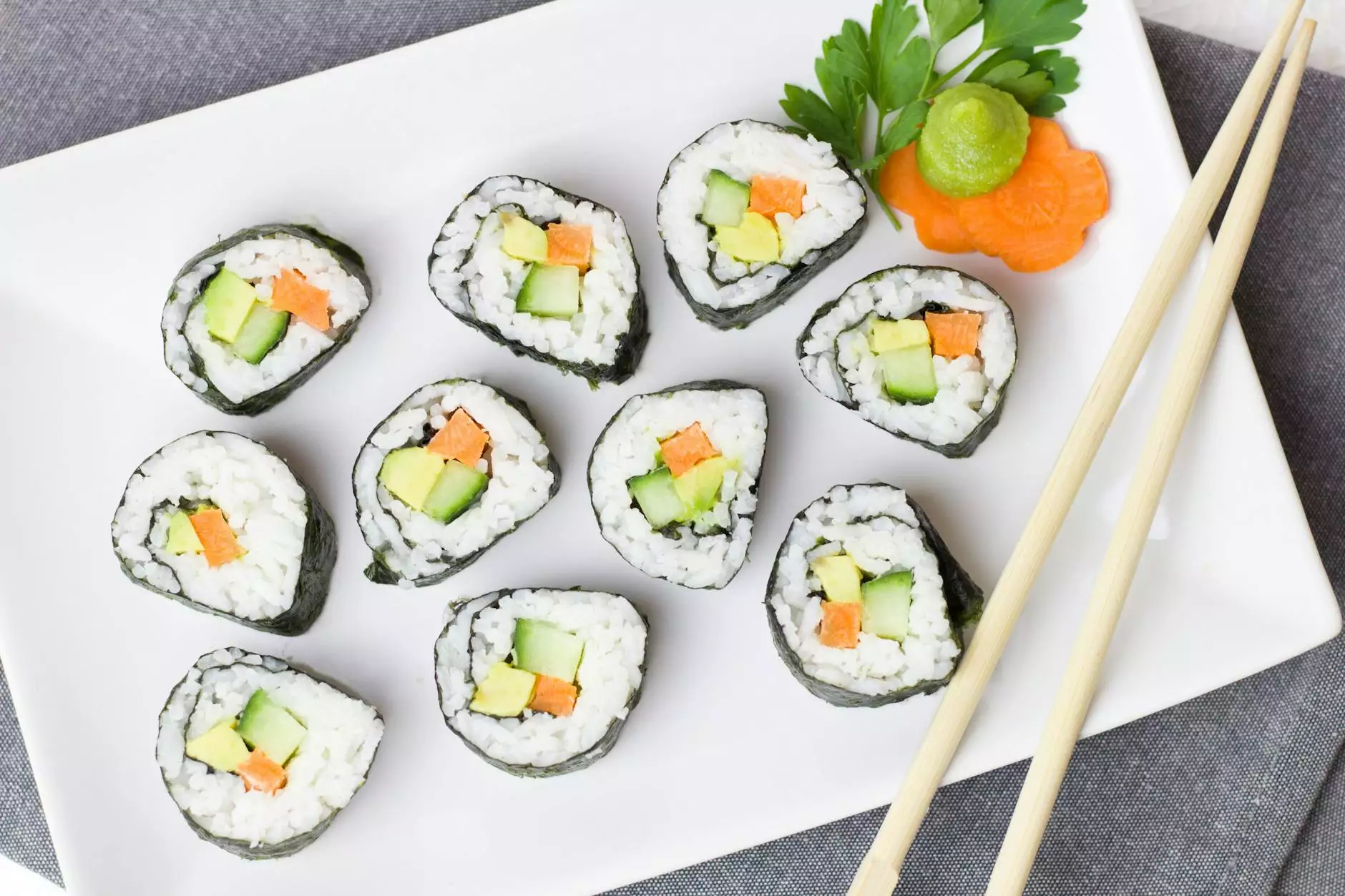Unlocking the Potential of Business in the Food Industry: Exploring Specialty Food & Innovative Opportunities

The food industry is one of the most dynamic and ever-evolving sectors in the global economy. With a diverse array of consumers seeking unique culinary experiences, health-conscious options, and sustainable practices, businesses must innovate continually to stay competitive. Companies like Navistar Food Group exemplify how a strong focus on specialty foods, strategic sourcing, and catering to niche markets can lead to sustainable growth and increased profitability.
Understanding the Business Landscape in the Food Industry
The food industry encompasses a broad spectrum of sectors, including restaurants, food manufacturing, wholesale distribution, and specialty food markets. Success in this space hinges on several critical factors:
- Consumer Trends: Modern consumers are increasingly looking for organic, locally sourced, and ethically produced foods.
- Innovative Product Offerings: Artisanal, gourmet, and specialty foods cater to a growing demand for unique flavors and experiences.
- Efficient Supply Chains: Strategic sourcing and logistical efficiency help reduce costs and improve product freshness.
- Brand Differentiation: Strong branding and marketing boost recognition and customer loyalty.
The Power of Specialty Foods in Business Growth
Specialty foods have become a hallmark of modern gastronomy, offering products that are distinctive, high-quality, and often handcrafted. For food business owners, integrating specialty foods can lead to significant differentiation and profitability.
Examples include artisan cheeses, organic jams, gluten-free baked goods, and ethnic delicacies. Such items often command higher margins and attract dedicated customer bases willing to pay a premium for authentic, high-quality products.
Moreover, specialty foods are an excellent avenue for branding and storytelling, enabling businesses to connect with consumers on a deeper level through transparency and unique ingredient narratives.
Strategic Sourcing of Raw Materials: The Role of Bulk Corn Husks for Crafts
In the realm of specialty foods and artisanal products, sourcing high-quality raw materials is paramount. One such niche is bulk corn husks for crafts, which have gained popularity not only among crafters but also as eco-friendly packaging and culinary tools.
Why Bulk Corn Husks for Crafts Matter in Business
These natural, biodegradable husks serve multiple purposes:
- Creating traditional crafts such as tamales, wreaths, and decorative items
- Providing sustainable packaging options that resonate with eco-conscious consumers
- Facilitating custom culinary presentations for upscale restaurants or catering services
For business owners, sourcing bulk corn husks for crafts allows for cost-effective procurement, ensuring a steady supply of eco-friendly materials that can be incorporated into a variety of product lines or services.
How to Leverage Bulk Corn Husks for Crafts in Your Business
Maximizing the potential of bulk corn husks involves strategic planning and marketing:
- Establish Reliable Suppliers: Partner with reputable suppliers like Navistar Food Group, known for high-quality, sustainably sourced materials.
- Innovate Product Offerings: Integrate corn husks into ones' craft or culinary creations, such as tamale wraps, decorative wreaths, or eco-friendly packaging.
- Brand Your Eco-Friendliness: Highlight your commitment to sustainability and natural materials in your marketing campaigns.
- Educate Your Customers: Showcase the versatility and environmental benefits of using bulk corn husks for crafts through tutorials, demos, and social media.
- Expand Distribution Channels: Offer your crafted products or raw materials online, at farmers' markets, craft fairs, or specialty stores.
Benefits of Incorporating Specialty and Sustainable Materials into Your Business
Businesses that embrace specialty foods and sustainable materials like bulk corn husks for crafts enjoy numerous advantages:
- Enhanced Brand Image: Demonstrating a commitment to quality and sustainability appeals to modern consumers.
- Differentiation in Competitive Markets: Unique products and eco-friendly practices set you apart from competitors.
- Higher Profit Margins: Specialty and artisanal products typically command premium prices.
- Market Expansion Opportunities: Niche markets, including eco-conscious and craft-specific segments, offer new growth avenues.
- Customer Loyalty and Trust: Transparent sourcing and sustainability efforts foster trust and repeat business.
Integrating Commercial Food Operations with Niche Markets
Successful food businesses often tap into niche markets by offering specialty items that cater to specific customer interests:
- Ethnic and Cultural Foods: Bringing authentic international dishes to a broader audience.
- Organic and Natural Products: Aligning with health and wellness trends.
- Eco-Friendly Packaging and Materials: Using sustainable inputs like bulk corn husks for crafts.
- Artisanal and Handmade Products: Emphasizing craftsmanship and story behind each item.
Combining these approaches with a robust supply chain and innovative marketing strategies can position your business as a leader in the specialty food sector.
Case Studies: How Leading Businesses Are Succeeding in the Industry
Case Study 1: A Gourmet Restaurant Incorporates Eco-Friendly Materials
A high-end restaurant sources bulk corn husks for crafts to wrap their signature dishes, creating an authentic presentation that enhances customer experience while emphasizing their commitment to sustainability. This initiative garners social media buzz and attracts eco-conscious diners.
Case Study 2: Artisanal Food Producer Focuses on Handmade Products
An artisan food company uses specialty ingredients and natural packaging, including corn husks, to craft tamales and gift sets. Their branding emphasizes natural and eco-friendly practices, appealing to a niche market willing to pay premium prices for authenticity and sustainability.
Conclusion: Embracing Innovation and Sustainability for Business Success in Food Industry
The future of the food business resides in innovation, quality, and sustainability. By investing in specialty foods, strategic sourcing such as bulk corn husks for crafts, and appealing to eco-conscious consumers, companies like Navistar Food Group pave the way for long-term success. Leveraging niche markets and sustainable materials not only benefits the environment but also enhances brand reputation, profitability, and customer loyalty.
Whether you own a restaurant, a food manufacturing firm, or a specialty craft supplier, integrating these elements into your business model can unlock new opportunities and elevate your position in the competitive food industry landscape.









